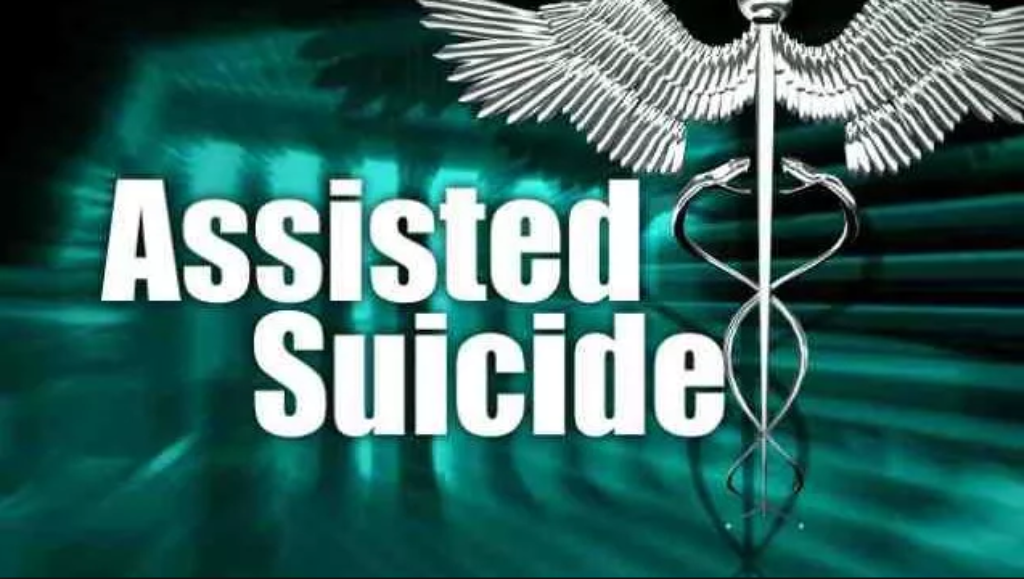Maine Becomes 8th State To Legalize Physician-Assisted Suicide
Maine has become the eighth state to pass a law allowing terminally ill the choice to bring their lives to a dignified end.

With the signature of the state’s Democratic Governor, Maine has become the eighth state to legalize assisted suicide for people suffering from terminal illnesses:
AUGUSTA, Maine (AP) — Maine legalized medically assisted suicide on Wednesday, becoming the eighth state to allow terminally ill people to end their lives with prescribed medication.
Democratic Gov. Janet Mills, who had previously said she was unsure about the bill, signed it in her office.
“It is my hope that this law, while respecting the right to personal liberty, will be used sparingly,” said Mills.
Oregon was the first state to legalize such assistance, in 1997, and it took over a decade for the next state, Washington, to follow suit. While still controversial, assisted suicide legislation is winning increasing acceptance in the United States, and this year at least 18 states considered such measures.
Maine’s measure will allow doctors to prescribe a fatal dose of medication to terminally ill people. It declares that obtaining or administering life-ending medication is not suicide under state law, thereby legalizing the practice often called medically assisted suicide.
The proposal had failed once in a statewide referendum and at least seven previous times in the Legislature. The current measure passed by just one vote in the House and a slim margin in the Senate.
The signing Wednesday was a relief to Mainers such as Staci Fowler, 47, who’s taken on the fight for such laws in honor of her late friend Rebecca VanWormer.
VanWormer, whose breast cancer spread to her bones, had pushed for such a bill in 2015 — two years before she died in 2017.
“This is what she wanted,” said Fowler, an educational consultant in Gardiner. “And now everybody has the option that she didn’t have.”
Maine joins seven other states and Washington, D.C., that have similar laws, according to the Death With Dignity National Center and the Death With Dignity Political Fund. The states are: California, Colorado, Hawaii, Oregon, Vermont, Washington, and New Jersey, whose governor signed the legislation earlier this year.Montana doesn’t have a specific law on the books, but the state Supreme Court ruled in 2009 that doctors could use a patient’s request for life-ending medication as a defense against criminal charges.
Maine’s population has the oldest median age, and, as in other states, the proposal has exposed divisions that defied party lines.
Supporters, including Democrats and a small group of Republicans who say the legislation is in line with the rugged state’s tradition of individualism, say the terminally ill should have the right to choose how their lives end.
The governor said she believes the law should protect such rights, while also spelling out protections for those “unable to articulate their informed choices.”
She issued an executive order Wednesday calling for the state to swiftly put the law’s protections into place and analyze the law’s impact.
Opponents, meanwhile, have said any assisted suicide legislation puts the terminally ill and individuals with disabilities in danger of abuse, coercion and mistakes. Such groups argue that doctors can be wrong and that government is devaluing life by “turning suicide into a medical option.”“Do you think the insurance companies will do the right thing or the cheap thing?” said Teresa McCann-Tumidajski, executive director of the Maine Right to Life Committee. “The so-called safeguards are there for the physicians, insurance carriers and lawyers. Not the patient.”
As more states slowly pass similar laws, critics nationwide argue that government should simply never wade into such issues.
“Assisted suicide is a dangerous public policy that puts the most vulnerable people in society at risk for abuse, coercion and mistakes,” said Matt Valliere, Executive Director of Patients Rights Action Fund, an advocacy group. “It also provides profit-driven insurance companies perverse incentives to offer a quick death, rather than costly continuing quality care.”
From a moral perspective, it seems fairly clear that individuals ought to have the right to determine when and how their life is going to end when they are diagnosed with a terminal illness like cancer. If individual liberty means anything, it would seem to most especially mean the right to determine one own’s destiny and fate in this type of situation, especially when it can be established that the decision is being made with full knowledge of the facts and not based upon mental illness or pressure from others. Ideally, of course, this is a situation that most people would make determinations about long before a decision has to be made through the preparation of Advance Medical Directives and similar documents. This is especially true in a situation where someone isn’t able to make decisions because of their condition, or because they are incapacitated. Physician-assisted suicide, of course, is a step beyond what is normally covered by such documents, but there isn’t any reason why they couldn’t be used to cover such situations as long as the law permitted it. At the very least, though, it seems obvious that it would be incredibly cruel to keep force someone to stay alive in a situation where the future that they face involves only suffering and inevitable death. Some people will choose to accept that fate, of course, but that’s their own choice, it’s not one that society as a whole should force on everyone.
On this note, it’s worth noting that the current moral compass in the United States is oddly perverse when you compare the way we treat animals and the way we treat human beings. As anyone who has ever owned a pet for a long period of time knows, there often comes a time when one must choose between trying to continue treating them for the effects of what for them constitutes advanced age and treating them compassionately. At those times, it’s not at all uncommon for someone to choose to euthanize a pet and, as painful as it can be to lose what has come to be a member of the family, the fact that they are no longer suffering is taken as comfort that the right decision has been made. When it comes to human beings, though, our morality tends to force us to act quite differently and, quite arguably, cruelly. Instead of allowing someone’s life to come to an end, or hastening that inevitable end as Hawaii in six other jurisdictions now allow, we have become accustomed to pumping people full of narcotics in the apparent belief that this somehow eases their pain rather than needlessly extending their life. While none of this means that terminally ill patients should ever be forcibly terminated against their will or the will of their loved ones, it does mean that they ought to at least have the option of considering this route for them or their loved ones.
Despite the fact that there is widespread public support for physician-assisted suicide, the practice is basically illegal in the United States. In 1997, the Supreme Court ruled unanimously in Washington v. Glucksberg that there was no constitutional right to physician-assisted suicide in a case that challenged laws that made the practice a felony in two states. Since then, states such as Hawaii have acted to either establish a procedure that must be followed if a patient wishes to die with the assistance of a doctor or provide legal immunity for doctors who write a prescription for lethal medication upon a patient’s request. In a fifth state, New Mexico, a trial court judge ruled in 2014 that terminally ill patients have a right to die under the state’s Constitution. That decision, however, was unfortunately overturned by New Mexico highest court in 2016. Despite this setback, activists have moved forward and the passage of this law in Hawaii is the first major success the movement has seen in some years. Perhaps this is a sign that things will change, for the sake of humanity they certainly should. Share Tweet




I consider myself well informed but I had no idea there was even one state with such a law.
The concern about insurance companies is overblown. They dont dal directly with patients, as a rule, so they won’t be making the decisions. On the physician side the economic incentive has always been to do more. That doesn’t change with this law. Fortunately most docs tend to do what is right most of the time. It is actually quite demoralizing for many of us when we are in the position of doing procedures to keep people alive when we know there is no hope of improvement and the patient doesn’t want further care. ( I have lots of stories.) If nothing else I hope this gets people to at least talk about end of life issues a bit more. Too often family are left making decisions not really knowing wha the patient really wanted, or afraid to make decisions.
Steve
@steve:
You mean convene a death panel? Extermination camps for old people? We don’t do intelligent conversations of issues, we do fundraising off fear driven by lies.
Oregon has had a physician assist law since 1997. Any discussion regarding the problems with these laws should begin with a review of the experience in that state. There have been no signs of abuse. BTW, informally physicians and nurses have been quite generous with pain medicine in many cases and for a long time.
@michael reynolds: When the real death panels come, they will be called life panels.